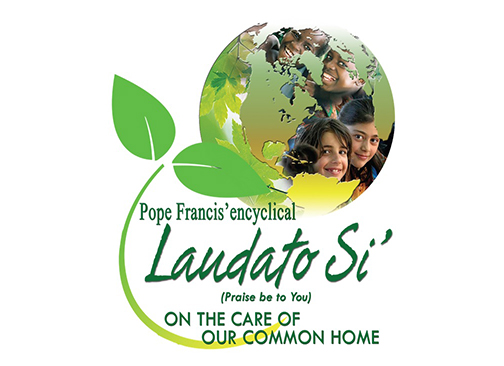Don’t let this Laudato Si’ moment pass
“There are extraordinary possibilities in Pope Francis’ encyclical Laudato Si’ On Care for Our Common Home,” said Columban Father Sean McDonagh who had written a commentary with a similar title.
Mar 18, 2016

“There are extraordinary possibilities in Pope Francis’ encyclical Laudato Si’ On Care for Our Common Home,” said Columban Father Sean McDonagh who had written a commentary with a similar title.
This book published by Orbis Books, takes the encyclical’s full text and adds McDonagh’s reflections on its various themes: among them, climate change, biodiversity, water scarcity and threats to the oceans, and the food crisis. In addition, McDonagh recaps the development of Catholic theology on creation of the past half-century, and offers ideas on how to transform Francis’ vision in Laudato Si’ into meaningful action and a central piece of Catholic theology.
Central to that, the Irish priest said, is a three-year synodal process aimed at taking the new teaching, “a new spirituality” that Francis offers in Laudato Si’ and finding ways to put it into practice of the faith.
“It’s new for a lot of us. Most of the people who go to seminaries and into theology didn’t actually deal with any of these issues, so there’s a difficulty,”McDonagh said, pointing in particular to Francis’ quoting of Ecumenical Patriarch Bartholomew in his frequent discussion of sins against creation, be it human-caused climate change or the loss of biodiversity due to pollution and deforestation.
“None of us here believe those are sins,” he added.
The first year of the synod would start at local parishes and dioceses, and ask people how they come to know the natural world, experience it and see their proper place within. Year two would shift to the national level, examining practices in each country, from energy usage to consumption to treatment of the oceans. In that process, he said, the Church “would start to begin creating prayers and liturgies that support this new engagement and new spirituality and new ethics with creation.” The third year would take those efforts internationally.
“I think this would be a great service. It would be a catalyst, the Church would be providing a catalyst. Because whether you like it or not, we’ve got to take these issues seriously. We haven’t taken them seriously for the last 50 years. If we don’t take them seriously, they don’t stop; they just continue, and we become less ready to deal with them into the future,” Mc- Donagh said.
Francis’ encyclical offers the Church an opportunity to become facilitators in the larger discussion of protecting the environment, the climate, the common earthly home. While the Church has written and spoken of the need to care for creation before Laudato Si’, it was largely insufficient in depth — he notes that the Compendium of the Social Doctrine of the Church, published in 2004, included half paragraphs each on climate change and biodiversity, and nine graphs on biotechnology — or ultimately overlooked.
“This is, potentially, an extraordinary moment for the Church,” he said. “… Now, do we take it or do we go back into our burrows? I hope we take it.”







Total Comments:0